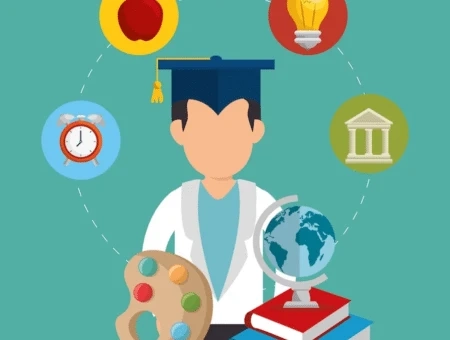The National Education Policy 2020 is relevant as it aims to address the growing needs of learners, promote equity and inclusivity, and foster holistic development. By aligning with global educational goals and embracing innovative approaches, it has the potential to shape a more resilient and future-ready education system in India.
The National Education Policy (NEP) 2020 is a landmark reform that aims to revolutionise India\'s education sector. It was approved by the Union Cabinet in July 2020, marking a significant shift in the country\'s education landscape. The policy replaces the previous National Policy on Education, 1986, and is aligned with the Sustainable Development Goal 4 (SDG 4) of the United Nations emphasises the provision of inclusive and equitable quality education for everyone.
Key Objectives
The National Education Policy 2020 aims to address the existing obstacles encountered by the Indian education system while also catering to the emerging needs of 21st-century learners. Some of the key objectives of the policy include:
- Universalisation of Education: Ensuring equitable access to quality education for all children from early childhood care to secondary level.
- Promotion of Multilingualism: Encouraging the use of the native language or regional language as the medium of instruction until Grade 5 while promoting the learning of multiple languages.
- Restructuring of School Education: Overhauling the existing 10+2 structure to a new 5+3+3+4 structure, which includes foundational (ages 3-8), preparatory (ages 8-11), middle (ages 11-14), and secondary (ages 14-18) stages.
- Curriculum Reforms: Emphasizing a holistic and multidisciplinary approach to learning, reducing the curriculum content to focus on core concepts, and integrating vocational education from Grade 6 onwards.
- Teacher Training and Professional Development: Enhancing the quality of teacher education programs, promoting continuous professional development, and ensuring the recruitment of qualified and competent educators.
- Promotion of Technology in Education: Leveraging technology to enhance teaching and learning outcomes, including the use of digital resources and platforms for online education.
- Higher Education Reforms: Promoting flexibility and autonomy in higher education institutions, facilitating multiple entry and exit points, and encouraging a multidisciplinary approach to learning.
- Promotion of Research and Innovation: Encourage research and innovation in higher education institutions through funding support, industry collaboration, and research clusters.
Implementation Challenges
While the National Education Policy 2020 outlines ambitious goals and objectives, its successful implementation faces several challenges. These include:
- Financial Constraints: Adequate funding and resource allocation are essential for successfully implementing the policy, but budgetary constraints may pose a challenge.
- Infrastructure Development: Upgrading infrastructure and providing necessary facilities in schools and higher education institutions may require significant investments and time.
- Capacity Building: Training and skill enhancement of teachers and educational administrators to adapt to the new pedagogical approaches and curriculum reforms will be crucial.
- Socio-cultural Context: The policy\'s emphasis on regional languages and cultural diversity may face resistance in some regions, requiring careful navigation of socio-cultural dynamics.
- Monitoring and Evaluation: Establishing robust monitoring, evaluation, and feedback mechanisms will be essential to track progress and make necessary course corrections.
Conclusion
The National Education Policy 2020 represents a landmark initiative aimed at transforming the Indian education system to meet the needs of the 21st century. With its emphasis on holistic development, flexibility, and inclusivity, the policy seeks to empower learners and educators. However, successful implementation will require concerted efforts from all stakeholders, including policymakers, educational institutions, teachers, parents, and students. Addressing challenges such as infrastructure gaps, resource allocation, and capacity building as the policy unfolds is pivotal to ensuring equitable access to quality education across all sections of society. By fostering a culture of innovation, critical thinking, and lifelong learning, the National Education Policy 2020 can catalyse positive change and pave the way for a brighter future for generations to come.



